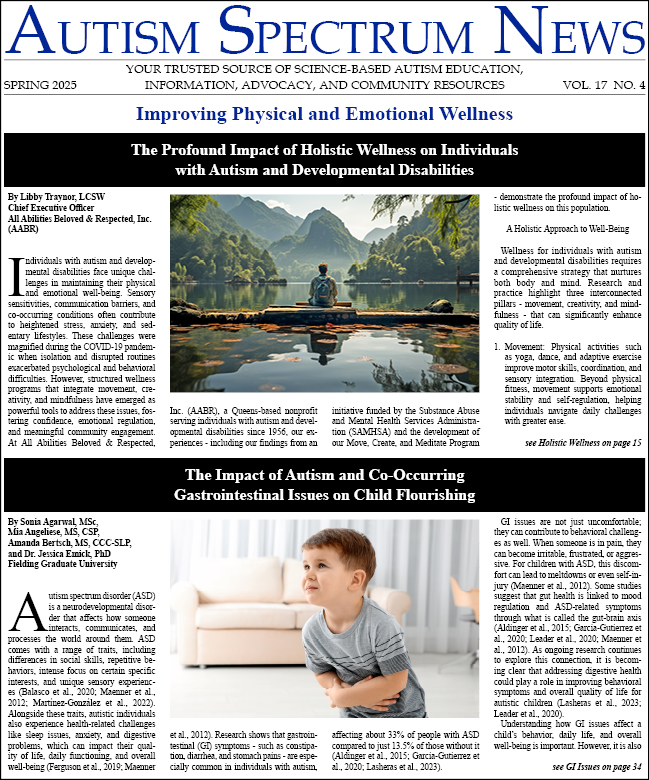-
Webinar: Introducing Spectrum Innovates Pathway Program
Introducing Spectrum Innovates Pathway Program (SIPP) A new model of transition to higher education and the workforce for individuals on the autism spectrum Spectrum Innovates Pathway Program (SIPP) is a gateway to higher education and the workforce for those whose passions include aviation,...
-
Balancing and Prioritizing Academic and Behavioral Goals in an Inclusive Classroom Setting
Before academics can be made a priority, a child’s behaviors must be addressed to set them up to be successful in an inclusive, general education setting. In an inclusive classroom setting, there are many behavioral demands placed upon a student. Target behaviors must be prioritized in order for...
-
Managing Back-to-School Jitters: Tips to Help Children With Special Needs Ensure a Smooth Transition
Remember how it felt as a child before your first day of school? Perhaps you experienced butterflies in your stomach or loss of sleep the night before. You were excited to see your friends, but also nervous about what the new school year would bring. That is exactly how I am feeling about sending...
-
The Key to True Success in College and Beyond
Success in college is not guaranteed, especially for autistic students. About 60% of full-time undergraduates receive a bachelor’s degree within 6 years of beginning college at a four-year institution (National Center for Education Statistics, 2020). Only 36% of young adults on the autism...
-
AHRC NYC-Pace University Partnership Boosts Middle High School Students’ Confidence, While Parents See a Future
As the pandemic continues to wreak havoc with everyday life, it has provided an opportunity for parents of students with autism to get a glimpse of their children’s future. Twenty-one AHRC New York City Middle/High School (MHS) students are working virtually with undergraduate students from Pace...
-
Reverse Inclusion and the Use of Peer Buddies to Teach Social Skills in a Public School Setting
It can be challenging to meet the needs of every student within the public school setting. For many students with autism, their academic needs are best met in a self-contained, special education classroom that utilizes the principles of applied behavior analysis. However, this can be limiting in...
-
Identifying and Navigating Behavioral Strategies in IEPs: How Can These Translate to Home?
An Individualized Education Plan (IEP) can be an overwhelming document for families, especially deciphering which interventions are appropriate to use by parents in the home or community setting. An IEP is created by a multidisciplinary team, including parents and the educational team, that...
-
The World is Our Classroom: Using Community-Based Instruction to Advance Socially Significant Behavior in Students with Disabilities
Community-based instruction is sustained and repeated instruction that takes place in the community rather than in the school building (Baker & Freeman, 2014). It is a research-based practice that provides “real-life” opportunities to teach functional life skills as well as aspects of the...
-
Compensatory Services in the Age of COVID
Due to the COVID-19 outbreak, school districts across the country have struggled to meet their legal obligations as set forth in the Individuals with Disabilities Education Act (IDEA), Section 504 of the Rehabilitation Act (Section 504) and the Americans with Disabilities Act (ADA) for students...
-
Special Education Due Process 101 – The Nuts and Bolts
A number of disputes and disagreements can arise between parents and school districts regarding a child’s special education programming. Some of these areas of disagreement may include identification, declassification, appropriateness of program, appropriateness of placement or services,...





